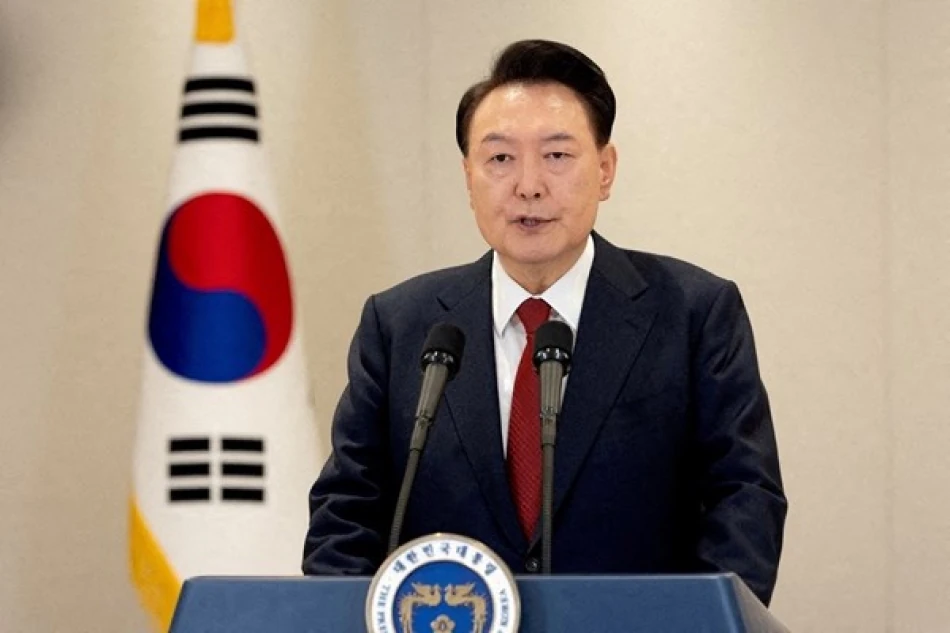
Impeached South Korean President Faces Fresh Allegations
South Korea's Impeached President Faces Mounting Criminal Charges as Legal Noose Tightens
South Korean authorities have filed additional criminal charges against imprisoned former President Yoon Suk Yeol, escalating the legal pressure on the impeached leader whose brief martial law declaration in December triggered the nation's worst constitutional crisis in decades. The new charges, including abuse of power and obstruction of justice, come as prosecutors build a comprehensive case that could result in life imprisonment or even the death penalty.
Expanding Criminal Case Beyond Insurrection
The prosecutor's office announced Saturday that the fresh charges against Yoon include obstructing others' exercise of rights through abuse of power, ordering the deletion of official records, and interfering with the execution of arrest warrants. These allegations supplement the primary insurrection charge, which carries South Korea's harshest possible penalties.
Yoon has been held at Seoul Detention Center since early January after a dramatic arrest that followed weeks of political standoff. His legal team's request for bail was rejected by the court last week, signaling judicial skepticism about his release during the ongoing investigation.
Historical Context: Echoes of South Korea's Democratic Struggles
The charges against Yoon represent the latest chapter in South Korea's complex relationship with presidential accountability. The country has a troubled history with former leaders facing criminal prosecution—four of the past six presidents have been imprisoned on various charges ranging from corruption to abuse of power.
However, Yoon's case stands apart due to the insurrection charges, which invoke memories of South Korea's authoritarian past when martial law was used to suppress democratic movements. His six-hour martial law declaration in December—the first such move since the country's democratization in the 1980s—shocked both domestic and international observers.
Political and Economic Implications
Constitutional Crisis Management
South Korea's handling of this crisis demonstrates the resilience of its democratic institutions, but the prolonged uncertainty has created governance challenges. Acting President Choi Sang-mok now faces the delicate task of maintaining stability while the country's founding president since democratization faces potential execution.
International Standing at Stake
The case has implications beyond South Korea's borders. As a key U.S. ally in containing North Korea and China's regional influence, political instability in Seoul creates strategic concerns for Washington. The swift rejection of Yoon's martial law attempt, however, has largely reassured international partners about South Korea's democratic durability.
Legal Strategy and Defense Challenges
Yoon continues to deny all wrongdoing, but his legal position appears increasingly precarious. The appointment of a special prosecutor in June specifically to handle cases against him indicates the gravity with which authorities view the charges. The systematic addition of new charges suggests prosecutors are building a comprehensive case designed to prevent any potential legal escape routes.
The former president's defense team has remained largely silent on the latest charges, possibly indicating strategic recalibration as the case expands. With insurrection charges already carrying maximum penalties, the additional charges may be aimed at ensuring conviction on lesser counts if the primary charge proves difficult to sustain.
Precedent-Setting Moment
This case will likely establish important precedents for presidential accountability in South Korea's democratic framework. The swift institutional response to Yoon's martial law declaration—from legislative override to impeachment and criminal prosecution—demonstrates how far the country has evolved from its authoritarian past.
The outcome will influence future presidential behavior and set boundaries for executive power in one of Asia's most vibrant democracies, making this case as significant for South Korea's democratic development as it is for Yoon's personal fate.
Most Viewed News

 Layla Al Mansoori
Layla Al Mansoori






